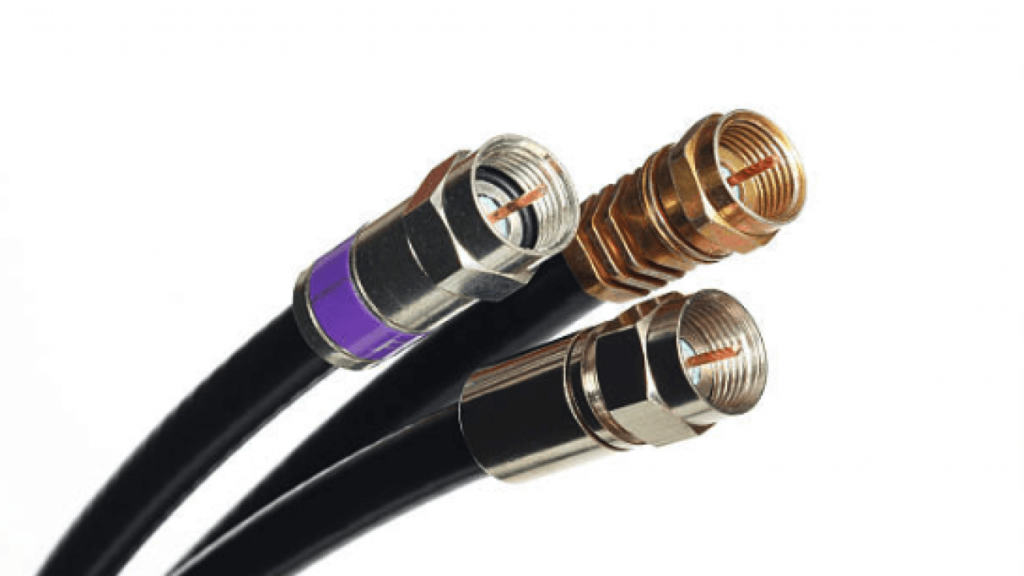When you’re setting up your home internet, you might find yourself surrounded by cables, ports, and tech terms that sound like another language. One of the most common questions people have is: Do I need a coax cable for internet?
The short answer: It depends on the type of internet service you’re getting. Let’s break it down so you can figure out exactly what you need for a smooth, fast connection.
What Is a Coaxial Cable?
A coaxial cable (or just “coax cable”) is a thick, round cable with a metal connector on each end. Inside, there’s a central wire wrapped in insulation and a metal shield. This design helps transmit radio frequency (RF) signals while protecting the signal from interference.
You’ve probably seen coax cables used for cable TV – and that’s no coincidence. The same cables are also widely used for cable internet connections, making them one of the most common ways homes get online.
How Coax Cables Work for Internet
With cable internet, your internet service provider (ISP) sends data through a coax cable from their network into your home. The cable plugs into your modem (or gateway), which then delivers the internet to your devices – either through Wi-Fi or an Ethernet cable.
Here’s why coaxial cable internet is still popular:
- Reliable connection: Less prone to signal loss and interference compared to some older technologies.
- Solid speeds: While not quite as fast as fiber, coax internet can handle most households’ streaming, gaming, and work-from-home needs.
- Affordable and available: Because so many homes already have coax hookups from cable TV days, installation is often easier and cheaper.
Do You Actually Need a Coax Cable for Internet?
Whether you need a coax cable really depends on your ISP and the type of internet plan you choose:
- If you have cable internet: Yes, you’ll need a coax cable to connect your modem to the wall outlet.
- If you have fiber internet: No coax required – fiber uses a totally different cable system.
- If you have DSL internet: No coax required – DSL uses telephone lines.
- If you have satellite internet: No coax from the wall, but the satellite dish setup may use different types of cables.
Pro tip: If you’re unsure, check with your internet provider before your installation date. They can tell you exactly what kind of connection you’ll need – and whether they’ll provide the coax cable or you should have one ready.
Alternatives to Coax Cable Internet
Even though coax cable internet is reliable and widely available, there are other options:
- Fiber internet: Blazing-fast speeds and great for heavy data use, but availability is still limited in some areas.
- DSL internet: Runs over phone lines, slower than cable or fiber but often available in rural areas.
- Satellite internet: Great for remote areas without cable or fiber infrastructure.
Installing and Maintaining a Coax Cable Connection
If you do need a coax cable for internet, installation is simple:
- Plug one end into your wall outlet.
- Plug the other end into your modem or gateway.
- Make sure the connections are snug (loose cables can cause signal issues).
To keep your connection strong, avoid bending or pinching the cable, and check it periodically for any damage.
Final Thoughts
So, do you need a coax cable for internet? If you’re using cable internet, absolutely. Coax cables are a tried-and-true way to deliver reliable speeds and keep your home connected. But if you’re going with fiber, DSL, or satellite, you might not need one at all.
The best way to know for sure is to talk to your internet provider and consider your speed needs, budget, and availability. That way, you’ll get the right setup for your home – without a tangle of extra cables you don’t actually need.
FAQs About Coax Cable Internet
- Can I use any coax cable for internet? No – for the best results, use an RG6 or RG11 coax cable. They’re designed for high-speed internet and better signal quality.
- How do I know if my internet uses a coax cable? If your ISP provides cable internet, you’ll need a coax. Look for a thick, round cable with screw-on metal connectors.
- Do I need a special modem for coax internet? Yes, you’ll need a DOCSIS-compatible cable modem (or a gateway) that works with your ISP’s network.
- Is coax internet slower than fiber? Generally, yes. Fiber internet can reach much faster speeds, but coax internet is still fast enough for most households.


